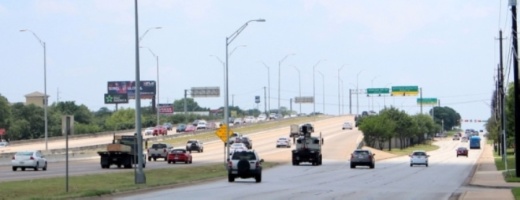Data from the Central Texas Mobility Authority backs up that trend, at least on the toll roads the regional mobility authority operates, which include SH 45SW, 183A Toll, 183 South, SH 71, 290 Toll and the MoPac express lanes.
According to data Mobility Authority Chief Financial Officer Bill Chapman presented to the board of directors May 27, the average number of daily trips on the Mobility Authority's toll roads jumped 59.6% from the week ending April 4 to the week ending May 23.
Traffic on the toll roads is not quite up to levels before the coronavirus pandemic affected the community—there were 378,152 daily trips on average the week ending March 7 and 235,877 daily trips the week ending May 23. However, traffic counts have going up every week since they bottomed out in early April. Throughout May, businesses in Central Texas have begun to open their doors with approval from Gov. Greg Abbott, who allowed restaurants to open while adhering to safety requirements May 1; restaurants were followed by a progression of other businesses, including barbershops, hair salons, gyms, bars, water parks and pools.
In a public service announcement released May 22, Abbott called for Texans to continue working to contain the coronavirus as the economy reopens.
“If you go out in public, stay 6 feet apart from others, wear a face covering and wash your hands regularly,” Abbott said.
While vehicle traffic on the Mobility Authority's toll roads has crept up, ridership on Capital Metro’s public transportation services have stayed relatively steady throughout April and May.
The transit agency waived its fares through April and May to encourage social distancing and keep both riders and operators safe. On June 1, fares will return for most riders, but anyone who is unemployed can receive a Workforce Aid Pass to continue free fares through June.
Since mid-March, when classes were canceled for local schools and Capital Metro announced limited service, ridership has ranged from a daily average of 30,000 -40,000, down from a daily average of more than 100,000 in February. The average for May 18-22 was 40,905 riders.
Editor's Note: This story has been updated to refer to the Central Texas Regional Mobility Authority as "the Mobility Authority" rather than "CTRMA." The names of the highways the Mobility Authority manages have also been updated.





